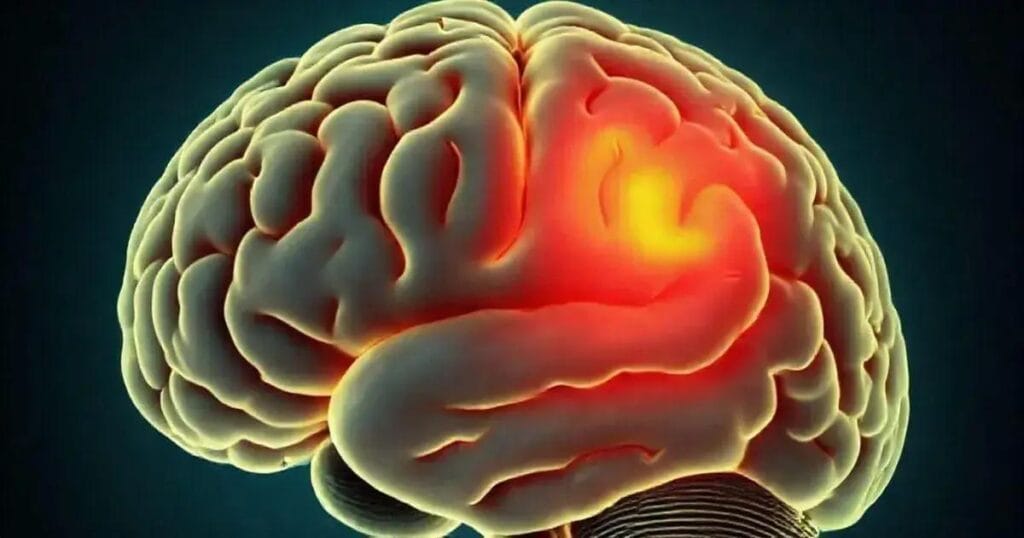Brain tumors can manifest in various ways, presenting unique challenges for diagnosis and treatment. Early recognition is vital, as symptoms often mimic other conditions.
By understanding the types of brain tumors, their symptoms, and the innovations in medical research, patients and families can navigate this complex health journey.
Content
ToggleUnderstanding Brain Tumor Symptoms
Understanding brain tumor symptoms is crucial for early detection and treatment.
Symptoms may vary greatly depending on the tumor’s type, size, and location in the brain.
Common Symptoms of Brain Tumors
Some common symptoms include:
- Headaches: Frequent or severe headaches that differ from usual headaches may be a sign.
- Nausea and Vomiting: Persistent nausea, especially in the morning, and unexplained vomiting can occur.
- Seizures: New onset of seizures in someone without a history might indicate a brain tumor.
- Vision or Hearing Changes: Changes in vision (blurry or double vision) or hearing loss.
- Personality Changes: Noticeable changes in mood, behavior, or cognitive functions.
Specific Symptoms Based on Tumor Location
Different types of tumors affect various brain regions, causing specific symptoms:
- Frontal Lobe: Problems with attention, planning, and difficulty with decision-making.
- Temporal Lobe: Memory issues and changes in hearing or speech.
- Occipital Lobe: Visual disturbances and difficulties recognizing familiar objects.
- Cerebellum: Problems with coordination, balance, and motor control.
If you or someone you know experiences these symptoms, it is essential to consult a healthcare professional.
Latest Treatments for Brain Tumors
The latest treatments for brain tumors focus on various methods, tailored to the tumor type and its location. These treatments may involve a combination of surgery, radiation, and chemotherapy.
Surgery
Surgery is often the first step in treating brain tumors. Surgeons remove as much of the tumor as possible while preserving healthy brain tissue. Techniques like craniotomy allow access to the brain for tumor removal.
Radiation Therapy
Radiation therapy is commonly used after surgery to eliminate any remaining cancer cells. It uses high-energy beams, such as X-rays, to target tumor cells. Techniques like stereotactic radiosurgery deliver precise radiation doses more accurately.
Chemotherapy
Chemotherapy involves using drugs to kill cancer cells. This treatment can be taken in pill form or injected in the bloodstream. It is often combined with other therapies for better results.
Targeted Therapy
Targeted therapy is a newer approach that attacks specific characteristics of tumor cells, improving effectiveness while reducing damage to healthy cells. This personalized approach is part of ongoing research.
Immunotherapy
Immunotherapy uses the body’s immune system to fight cancer. Treatments may involve enhancing immune responses against tumor cells or using specific vaccines designed for brain tumors.
As research continues, new treatments are being developed, providing hope for more effective therapies in the future. Consult with a healthcare provider to discuss the best treatment options for individual circumstances.
Current Research and Future Perspectives on Brain Tumors
Current research on brain tumors aims to improve diagnosis and treatment. Scientists are exploring various avenues to understand these cancers better.
Genetic Research
Researchers are studying the genes involved in brain tumors. Understanding genetic mutations can lead to targeted therapies, aiming to treat tumors more effectively.
Immunotherapy Advancements
Immunotherapy is a promising field. Scientists are developing treatments that enhance the body’s immune response to fight brain tumors. Trials are underway to discover how these treatments can be optimized for effectiveness.
Nanotechnology in Treatment
Nanotechnology is being researched for its potential to deliver drugs directly to tumors. This method aims to minimize harm to healthy tissues while maximizing the impact on cancerous cells.
Clinical Trials
Many clinical trials are ongoing to test new treatment combinations and drugs. Patients can participate, which contributes to vital research while receiving cutting-edge care.
Future Perspectives
The future of brain tumor treatment looks promising. With advances in genetics, targeted therapies, and technology, researchers hope to develop more effective treatments.
Collaboration among scientists, doctors, and patients plays a crucial role in these breakthroughs.
In Summary: Navigating the Journey of Brain Tumor Treatment
Understanding brain tumors involves recognizing symptoms, exploring the latest treatment options, and staying informed about current research.
It’s crucial for patients and families to be proactive in seeking medical advice and exploring available resources.
With advancements in surgery, radiation, chemotherapy, and innovative therapies like immunotherapy and targeted treatments, the landscape of brain tumor care is rapidly evolving. In addition, ongoing research promises a future filled with hope for better outcomes and improved quality of life for those affected.
By staying connected with advancements in brain tumor science and participating in discussions regarding treatment options, patients can make informed decisions that align with their needs and goals.
FAQ – Frequently Asked Questions About Brain Tumors
What are common symptoms of brain tumors?
Common symptoms include headaches, nausea, seizures, vision changes, and personality shifts. Recognizing these early can be crucial.
What are the latest treatments available for brain tumors?
The latest treatments include surgery, radiation therapy, chemotherapy, targeted therapy, and immunotherapy. Each option is tailored to the patient’s specific situation.
Is brain tumor research exploring genetic factors?
Yes, current research is focused on understanding the genetics of brain tumors, aiming to develop targeted therapies that address specific genetic mutations.
What role do clinical trials play in brain tumor treatment?
Clinical trials test new treatments and combinations, providing patients access to cutting-edge therapies while advancing medical research.
How can I find support if diagnosed with a brain tumor?
Support can be found through healthcare providers, cancer support groups, and online communities that focus on brain tumor awareness and education.
Are there lifestyle changes that can help manage brain tumor symptoms?
Maintaining a healthy lifestyle, including proper nutrition, exercise, and stress management, can help manage symptoms and improve overall well-being.



